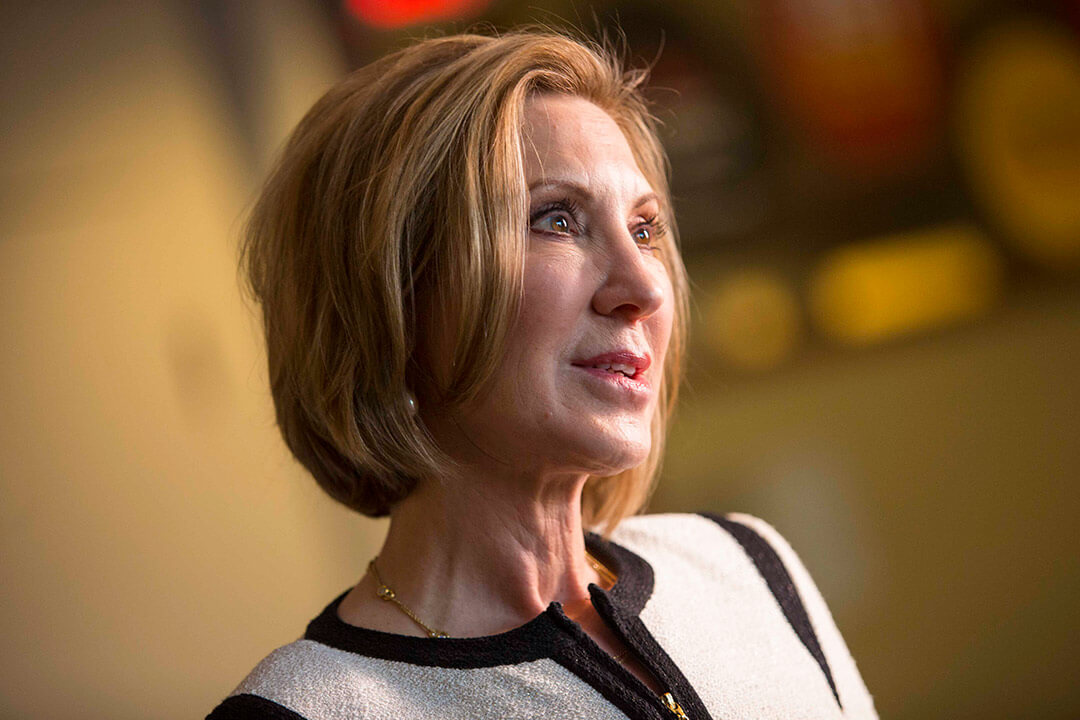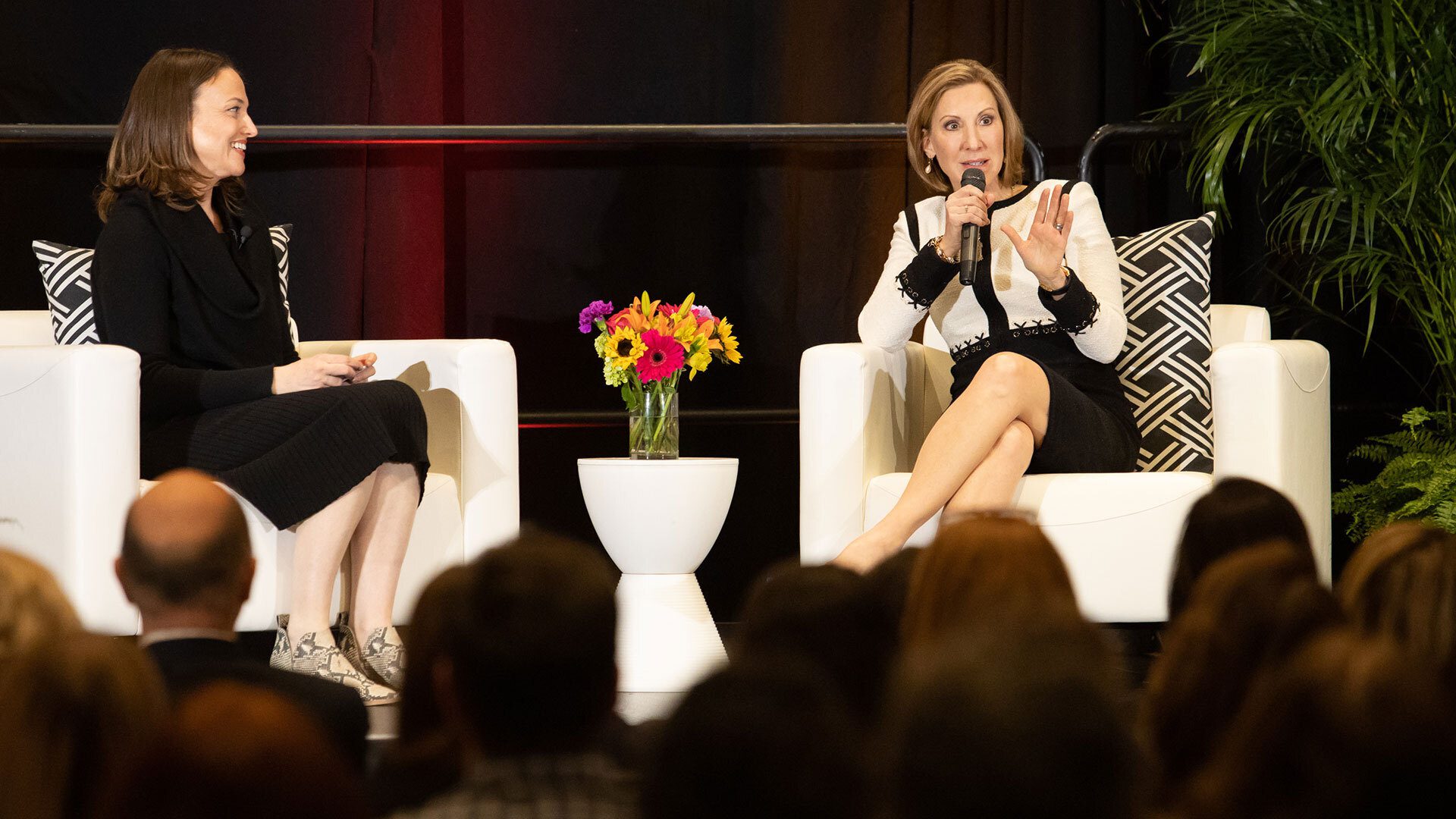- March 06, 2019
- By Daryl James
Women solve problems when they step forward as independent-minded leaders, honored guest Carly Fiorina said last night at the eighth annual Women Leading Women forum at the University of Maryland.
“One of my regrets about politics is that women have allowed themselves to be politicized,” Fiorina MBA ’80 told an audience of about 300 faculty, staff, students and alumni in the Grand Ballroom at the Adele H. Stamp Student Union. “Somehow we have this expectation that women should always agree.”
Fiorina rejected this notion. “We are not a special interest group,” she said. “We are individual actors, just like men.”
She said women represent half the population, so every issue is a women’s issue. “We should define for ourselves what we think and what we believe,” she said.
The signature event was part of the Robert H. Smith School of Business’ celebration of Women’s History Month. Fiorina is a former HP chief executive and 2016 candidate for president who now leads Carly Fiorina Enterprises and the Unlocking Potential Foundation.
During an hourlong conversation moderated by Maryland Smith Professor Nicole Coomber, Fiorina highlighted five themes from her third book, “Find Your Way: Unleash Your Power and Highest Potential,” scheduled for release on April 9.
1. Path over plan: Some people set goals to reach a certain position or salary by a certain age. But Fiorina said the approach can backfire. “When you’re on a plan, you may miss opportunities,” she said. “Or you might get to your destination and discover that it doesn’t satisfy you. Or you might not reach your destination at all.” Fiorina focused instead on solving problems in front of her, which put her on a path to leadership.
2. Substance over style: When Fiorina started her first corporate job at AT&T, she heard people talking about “42 long,” referring to the suit size of high-potential leaders. Fiorina looked nothing like that, but she persevered. “Leadership is about solving problems. That’s the only way to unlock your potential, and appearance has nothing to do with it.”
3. Feedback over criticism: A person starting on the problem-solving path will quickly encounter opposition from people who prefer the status quo. “Criticism is the price of leadership,” Fiorina said. Her reaction is to pause and reflect before reacting. She also seeks feedback from trusted allies, who tell her the truth even if it hurts because they care about her success.
4. Questions over answers: Leaders get paid to make decisions, but the process starts with inviting feedback and listening. “Asking the right question is a far more important skill than always knowing the right answer,” Fiorina said. Earning an MBA gave Fiorina an edge in this regard. “You learn enough about a lot of things to ask the right questions about virtually anything,” she said. “That turns out to be incredibly important.”
5. Solutions over winning: Fiorina entered politics to solve problems, but she saw something else when she ran for the U.S. Senate in 2010 and the Republican presidential nomination in 2016. “Politics is not about solving problems,” she said. “It’s about winning.” The realization led to her current work at Unlocking Potential, a Virginia-based nonprofit focused on the problem-solving and leadership capacity of community-based organizations. “We have to lift more leaders up,” Fiorina said.
Topics
People